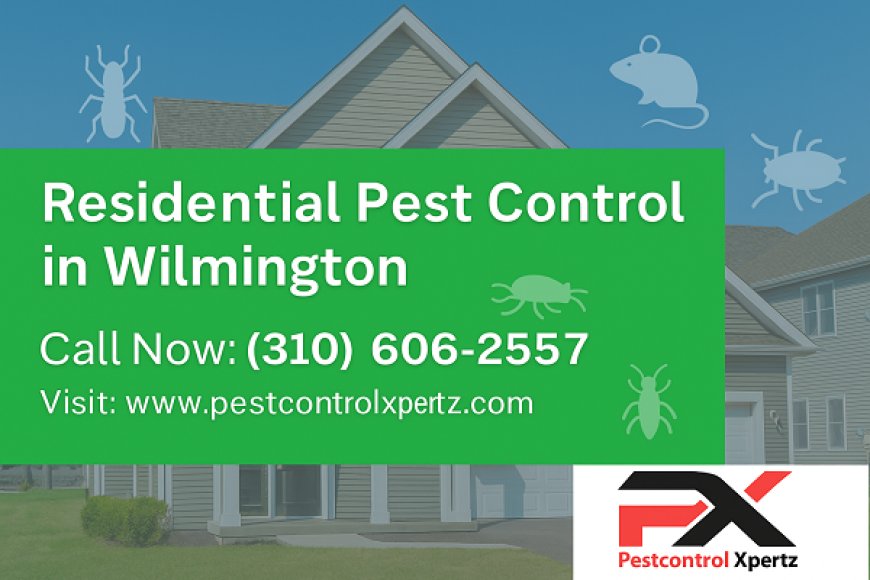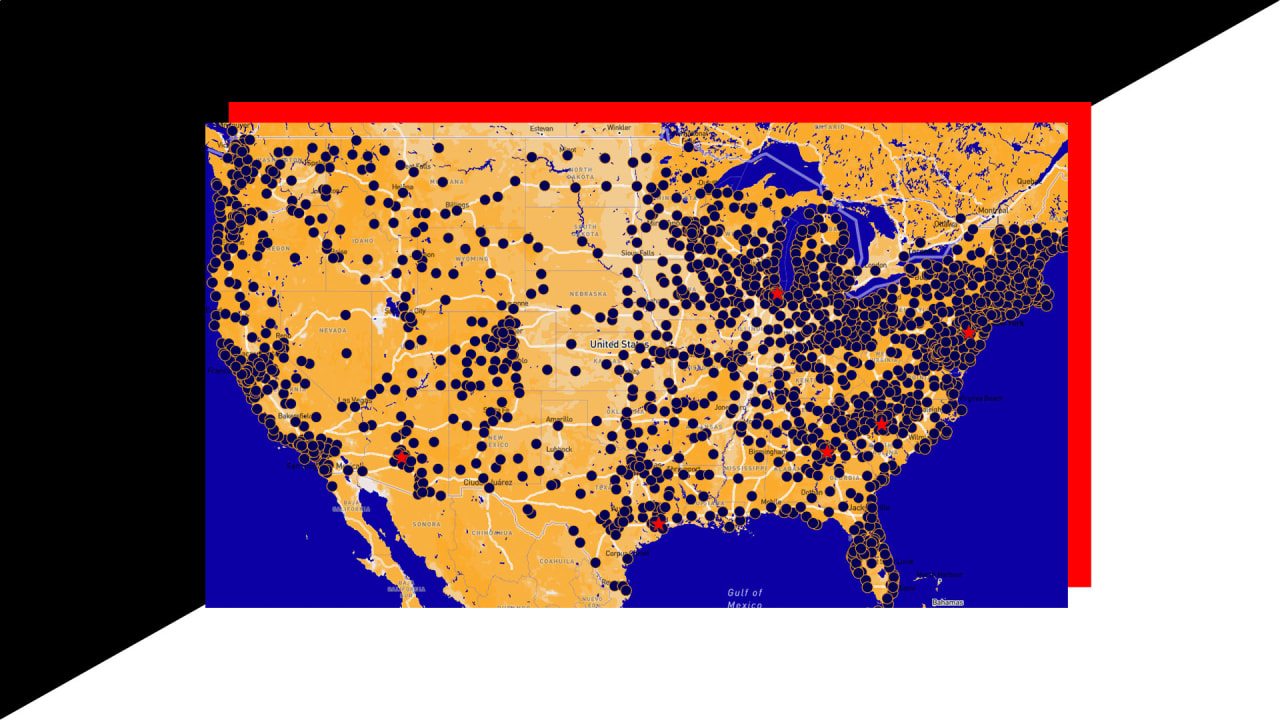Your Guide to a Pest-Free Home: What to Expect from Professional Residential Pest Control in Wilmington
Demystify residential pest control in Wilmington. Learn what to expect from professional services, from inspection and treatment to ongoing prevention for a truly pest-free home.

Discovering pests in your Wilmington home can be unsettling. Whether it's a persistent trail of ants, the unsettling scurry of a rodent, or the insidious threat of termites, the desire for a swift, effective solution is paramount. While the thought of calling a professional might bring questions about what the process entails, understanding the steps involved can demystify the experience and build confidence. Engaging expert residential pest control in Wilmington is a structured, strategic process designed to not only eliminate current invaders but also prevent future ones, ensuring your home remains the comfortable sanctuary it's meant to be.
Navigating the world of pest management can seem complex, but with the right guidance, it becomes a straightforward path to peace of mind. To learn more about the detailed process and commitment of dedicated professionals in residential pest control in Wilmington. This understanding empowers you as a homeowner and sets clear expectations for a successful partnership.
From First Call to Pest-Free: What to Expect from Professional Residential Pest Control
The journey to a pest-free home typically begins with a single phone call, but it extends into a comprehensive program of assessment, treatment, and ongoing prevention.
The Initial Contact: Your First Step Towards a Solution
When you first reach out to a professional pest control service in Wilmington, you'll typically discuss:
- Your Concerns: Clearly describe the pests you've seen, where you've seen them, how long the problem has been ongoing, and any attempts you've made to control them yourself. Be as specific as possible.
- Initial Assessment: The customer service representative may ask questions to gauge the severity of the problem and provide an initial overview of potential services and costs.
- Scheduling an Inspection: For most pest issues, especially persistent or severe ones, a thorough on-site inspection is the crucial next step. This can often be scheduled quickly to address your immediate concerns.
The Crucial Inspection: Identifying the Root of the Problem
This is perhaps the most vital stage of the entire pest control process. A skilled technician will visit your Wilmington home to conduct a detailed assessment, focusing on:
- Pest Identification: Accurately identifying the specific pest species is paramount, as different pests require different treatment protocols. What looks like a flying ant to you could be a termite swarmer, requiring a completely different approach.
- Extent of Infestation: Determining how widespread the problem is, including hidden nests or harborage areas.
- Entry Points: Locating how pests are gaining access to your home (e.g., cracks in the foundation, gaps around pipes, torn screens, attic vents).
- Conducive Conditions: Identifying environmental factors that attract pests (e.g., moisture issues, overgrown landscaping, accessible food sources, clutter). This holistic approach addresses the "why" behind the infestation.
- Vulnerability Assessment: Looking for potential future problem areas that could invite pests.
A thorough inspection leaves no stone unturned, providing the technician with all the information needed to formulate an effective strategy.
Crafting Your Custom Treatment Plan
Based on the inspection findings, your pest control professional will develop a tailored plan specifically for your Wilmington home and its unique pest challenges.
Tailored Strategies for Wilmington's Pests
- Specificity: The plan will be specific to the pests identified, their lifecycle, and their behavior patterns relevant to our local climate.
- Scope: It will outline which areas of your home will be treated (interior, exterior, attic, crawl space, yard perimeter) and the frequency of treatments.
- Integrated Pest Management (IPM): A reputable company will present an IPM approach, which means they consider a combination of strategies:
- Exclusion: Sealing entry points to physically block pests.
- Sanitation: Recommending ways to reduce food, water, and shelter sources.
- Biological Control: (Less common for residential, but part of IPM philosophy).
- Chemical Application: Using targeted, minimal, and EPA-approved products when necessary.
- Exclusion: Sealing entry points to physically block pests.
- Environmental Considerations: Discussing any concerns you have regarding children, pets, or environmental sensitivities.
Understanding Treatment Methods: Safety and Effectiveness
Your technician should clearly explain the proposed treatment methods, including:
- Product Information: What types of products will be used, their active ingredients, and how they work.
- Application Techniques: How and where the products will be applied (e.g., crack and crevice treatments, bait stations, barrier sprays).
- Safety Precautions: Any necessary precautions you need to take before, during, and after treatment to ensure the safety of your family and pets. This might include vacating the premises for a short period or covering certain items.
A clear, transparent explanation ensures you are comfortable and informed about the entire process.
The Treatment Process: What Happens During the Service Visit
Once the plan is agreed upon, the technician will proceed with the treatment, often adhering to a scheduled visit.
Preparation Guidelines for Homeowners
Before the technician arrives, you might receive instructions for preparing your home. This could include:
- Clearing clutter from floors, especially around baseboards.
- Storing food in sealed containers.
- Moving furniture away from walls.
- Vacuuming thoroughly (especially for fleas or bed bugs).
- Securing pets and informing the technician of their locations.
Following these guidelines helps ensure the treatment is as effective and safe as possible.
The Technician's Work: Targeted Application and Exclusion
During the service visit, the technician will:
- Perform Pre-Treatment Checks: A quick review to confirm the plan and identify any new developments.
- Apply Treatments: Carefully apply chosen products to target areas, focusing on pest harborage zones, trails, and entry points. This is often done with precision, using specialized equipment.
- Implement Exclusion Measures: If part of the plan, the technician might seal small cracks, install mesh over vents, or provide recommendations for larger exclusion work.
- Provide Post-Treatment Advice: Offer immediate guidelines for safety (e.g., drying times for sprays) and next steps.
Beyond the Treatment: Follow-Up and Long-Term Prevention
Effective pest control is rarely a one-time event, especially for persistent issues or in environments like Wilmington where pest pressure is consistent.
The Importance of Post-Treatment Monitoring
- Follow-Up Visits: Many comprehensive plans include follow-up visits to monitor the effectiveness of the initial treatment, address any lingering activity, and re-treat if necessary. This is crucial for breaking pest life cycles.
- Ongoing Protection: For continuous peace of mind, many homeowners opt for recurring service plans (e.g., quarterly). These plans provide regular inspections and preventative treatments that adapt to seasonal pest activity, maintaining a protective barrier around your home year-round.
- Adjustment of Strategies: Based on ongoing monitoring, the pest control company can adjust treatment methods or recommend further preventative actions.
Your Role in Maintaining a Pest-Free Home
While professionals do the heavy lifting, your ongoing collaboration is key to long-term success. This includes:
- Maintaining Sanitation: Keeping your home clean, reducing clutter, and storing food properly.
- Addressing Moisture Issues: Fixing leaks, ensuring proper drainage, and managing humidity.
- Sealing Small Gaps: Continually inspecting and sealing new cracks or openings.
- Landscaping Management: Trimming bushes away from the house, removing debris, and managing mulch.
- Reporting New Activity: Promptly informing your pest control company if you see new signs of pests between visits.
Why Trusting the Process with Local Experts Matters
Choosing a professional for residential pest control in Wilmington is an investment in a methodical, expert-driven process. From the initial detailed inspection to tailored treatments and ongoing maintenance, a reputable company provides a systematic approach that DIY efforts simply cannot match. Their knowledge of local pest pressures, access to advanced tools, and commitment to safe, effective solutions ensures your home remains a haven.
For a clear, effective, and results-driven pest control experience in your Wilmington home, trust Pest Control Xpertz. Their team of certified professionals guides you through every step of the process, from initial consultation and thorough inspection to customized treatment plans and ongoing preventative maintenance. With Pest Control Xpertz, you gain a partner dedicated to delivering long-term peace of mind and ensuring your home is protected with expertise and care.
Take the First Step Towards a Pest-Free Home
Don't let pests compromise the comfort and safety of your Wilmington home. By understanding and embracing the professional pest control process, you empower yourself to make informed decisions and enjoy the lasting benefits of a truly pest-free environment. Contact the experts today and start your journey towards a healthier, happier home.





































































![https //g.co/recover for help [1-866-719-1006]](https://newsquo.com/uploads/images/202506/image_430x256_684949454da3e.jpg)


























![[PATREON EXCLUSIVE] The Power of No: How to Say It, Mean It, and Lead with It](https://tpgblog.com/wp-content/uploads/2025/06/just-say-no.jpg?#)






















































